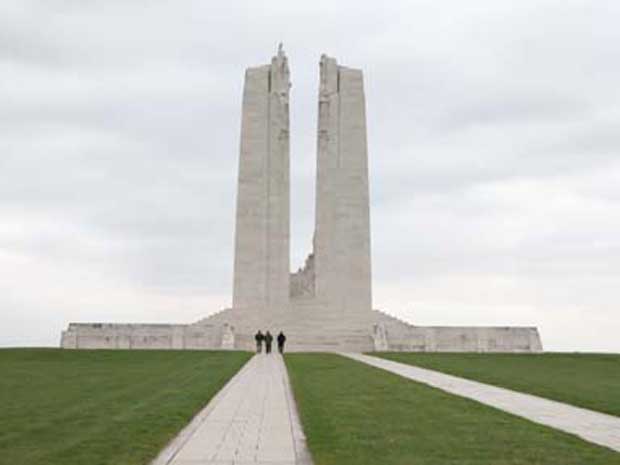 VIMY RIDGE – Leaders Ledger – It is a pleasure to join all of you here to discover the history of Wellington Quarry and of Vimy.
VIMY RIDGE – Leaders Ledger – It is a pleasure to join all of you here to discover the history of Wellington Quarry and of Vimy.
Reading history and studying it in the classroom is vital to our understanding of the world as it is today. But sometimes, history needs to be seen, heard, touched and experienced first-hand.
Canada has accomplished so much since Confederation, but we are a young country compared to this part of the world.
Wellington Quarry is one of those places that can be traced back to the Middle Ages. Imagine—in one form or another, the Quarry has existed for centuries.
Here, we are surrounded by history.
The First World War was a time of great strife. Tens of thousands of Canadian soldiers gave their lives.
It was also a time of innovation, as evidenced by the unique use of these tunnels, of tenacity and of commitment. Soldiers, despite the constant danger, remained dedicated to their country and to the cause for which they fought. And though many were lost, we fought well.
In Arras, and to an even greater extent at Vimy, Canadians were instrumental in beating back the enemy. We worked side-by-side with Allies from around the world, joining forces in a common struggle.
As Explorica students, you have seen and will see more of our history during your visit. You will trace the path not of our politicians or generals in the rear, but of the solider in the trenches, fighting for our country and fighting to get back home.
It is fitting that you arrive during the 95th anniversaries of the Battle of Vimy Ridge and the Battle of Arras. You can see the resolve of others to remember the terrible cost of war. In this way, we honour the memory of those we have lost.
But it is you, young Canadians, who will carry this legacy forward in new ways. Two years ago, Canada lost its last living link to the First World War—John Babcock, who died at the age of 109. My generation was fortunate to hear first-hand from survivors, to learn of the horror and the bravery and the sacrifice.
The generation to come will have no such link, but will rely on us to tell the stories, to pass them on, to teach the lessons of war so that we never have to repeat our mistakes.
It is fortunate, then, that we have places like this, and others like it around the world, preserved for all of us so that we have some tangible idea of what transpired.
Later in your journey, you will visit the cemetery at Vimy. Take a moment and consider what this means. As you place the poppy crosses on the graves of Canadian soldiers, some not much older than you, think about the urgency of the moment, the battle raging around them. The terror and the adrenaline. The noise. And then think about how we can work together with others, peacefully; how we can collaborate with the world to make sure this never happens again; how we can achieve a smarter, more caring world where wars are memories and history, not reality.
I hope that you make the most of this great learning opportunity, but remember that it comes with a responsibility. You have the responsibility to go home and tell others of what you have seen, heard, touched and experienced.
You are here with Explorica because you understand the importance of history and how it impacts our future. I hope that at the end of this trip, you will have an even greater pride in your country and a desire to share with your classmates, friends and family all that you have learned.
Thank you.
Governor General David Johnson
